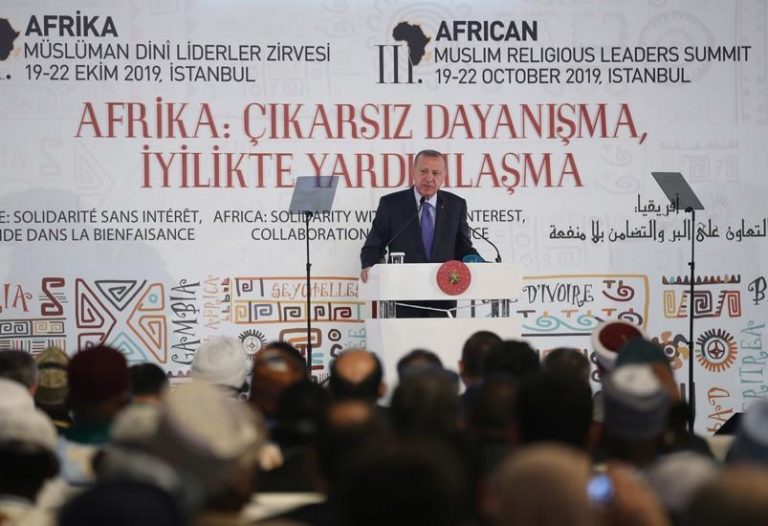Africa’s political influence is moving from aspiration to measurable leverage. As global power realigns, governments across the continent are converting demographic weight, critical mineral reserves and tighter regional coordination into bargaining power in forums that long set agendas without them.
The African Union’s entry as a permanent member of the G20, the expansion of BRICS to include Egypt and Ethiopia, and sharper negotiating stances in climate and debt talks underscore a shift that major powers can’t ignore. From Washington and Brussels to Beijing, Moscow and the Gulf, partners are competing for ties with African capitals-offering investment, security cooperation and market access-while leaders from Nairobi to Abuja use that courtship to demand better terms on technology transfer, value-added processing and sovereign debt relief. The continent’s louder voice is poised to shape decisions on the energy transition, supply chains and the reform of global institutions, testing how far a more multipolar order will bend to Africa’s priorities.
Table of Contents
- Africa consolidates global clout as the African Union takes a Group of Twenty seat and coordinates United Nations voting blocs
- Critical minerals and the energy transition shift bargaining power as states tie access to in country processing royalty floors transparent contracts and regional grid links
- Next moves align positions through AfCFTA pursue multilateral bank reform and loss and damage funding scale concessional finance and ease visa and data rules
- In Summary
Africa consolidates global clout as the African Union takes a Group of Twenty seat and coordinates United Nations voting blocs
With the African Union now seated at the G20, African capitals are translating a 1.4‑billion‑person market and coordinated caucusing at the United Nations into tangible leverage on debt relief, climate funding, and rule‑setting for trade and technology; by synchronizing positions among regional communities and through platforms such as the A3 on the Security Council and the Committee of Ten on UN reform, the continent is shifting from agenda‑taker to agenda‑setter, compelling major powers and lenders to price African priorities into global negotiations.
- Debt restructuring leverage: Stronger voice in Common Framework talks, greater scrutiny of creditor transparency, and push for state‑contingent instruments.
- Climate finance gains: Momentum for loss‑and‑damage funding, concessional capital for adaptation, and scalable carbon‑market rules aligned with just energy transitions.
- Critical minerals standards: Drive for value‑addition at source, responsible sourcing rules, and supply‑chain diversification for batteries and clean tech.
- UN vote coordination: Tighter alignment of General Assembly and Security Council positions to influence resolutions on peace, health security, and digital governance.
- AfCFTA acceleration: Use of G20 access to unlock trade facilitation, corridors, and harmonized customs to boost intra‑African commerce.
- Peace operations financing: Renewed push for predictable, UN‑assessed contributions to African‑led missions and stabilization initiatives.
- Health and data standards: Advocacy for equitable access to vaccines and genomic surveillance while shaping cross‑border data and AI norms.
Critical minerals and the energy transition shift bargaining power as states tie access to in country processing royalty floors transparent contracts and regional grid links
African capitals are converting resource endowments into leverage as demand for cobalt, lithium, manganese and rare earths accelerates, binding mine access to domestic value-add, minimum take terms and cross-border power trade; governments are coupling permits and offtakes to a policy bundle that includes • Processing mandates (DRC-Zambia battery corridor, Zimbabwe and Namibia curbs on raw lithium exports) • Royalty floors and sliding scales to stabilize revenues across cycles (from DRC’s “strategic minerals” regime to copper-linked bands in Zambia) • Transparent contracts via EITI-aligned disclosures and open portals to de-risk financing and curb side deals • Regional grid links to power beneficiation with cleaner electrons (SAPP and EAPP interconnectors, Ethiopia-Kenya HVDC, the Zambia-Tanzania-Kenya line, and wheeling of hydropower from the Congo basin) • Local content and FX rules that anchor jobs, skills and currency retention; backed by Afreximbank, the Lobito Corridor, and consortium models, these conditions are shifting price discovery and political risk back onto buyers from the EU, U.S. and China, who are now agreeing to longer-tenor offtakes, ESG audits and co-investment in midstream plants to secure supply.
Next moves align positions through AfCFTA pursue multilateral bank reform and loss and damage funding scale concessional finance and ease visa and data rules
African capitals are translating diplomatic momentum into a coordinated economic agenda: trade chiefs are using the AfCFTA to forge common negotiating stances, finance ministers are coalescing around governance shifts and capital-adequacy reforms at multilateral banks, climate envoys are pushing to operationalize loss-and-damage support with rapid, predictable disbursements, and regulators are moving to cut friction by harmonizing visa regimes and data policies-steps aimed at lowering borrowing costs, accelerating project delivery, and lifting intra-continental commerce ahead of upcoming IMF-World Bank and climate summits.
- Coordinate AfCFTA positions to pool market power, align standards, and speed rules-of-origin implementation.
- Press multilateral bank reform for greater African voice, balance-sheet optimization, and faster approval pipelines.
- Operationalize loss-and-damage finance with clear access rules, country platforms, and resilient pipelines.
- Scale concessional windows to de-risk green and infrastructure projects and crowd in private capital.
- Ease visas and modernize data rules to boost labor mobility, digital trade, and cross-border services.
In Summary
For now, Africa’s rising leverage is being felt more in negotiating rooms than in headline-grabbing ruptures. The African Union’s place at the G20, coordinated positions across multilateral forums, and a more assertive approach to investment and security partnerships signal a continent intent on setting terms, not merely accepting them. The test will be whether that visibility converts into durable outcomes at home-on debt, jobs, infrastructure, and climate resilience-amid persistent governance and security strains. As global powers court African capitals and African leaders deepen their own coalitions, the next rounds of summits and deals will show whether this moment becomes momentum. The balance of power is shifting by degrees, not by decree, and Africa is increasingly helping set where it settles.


